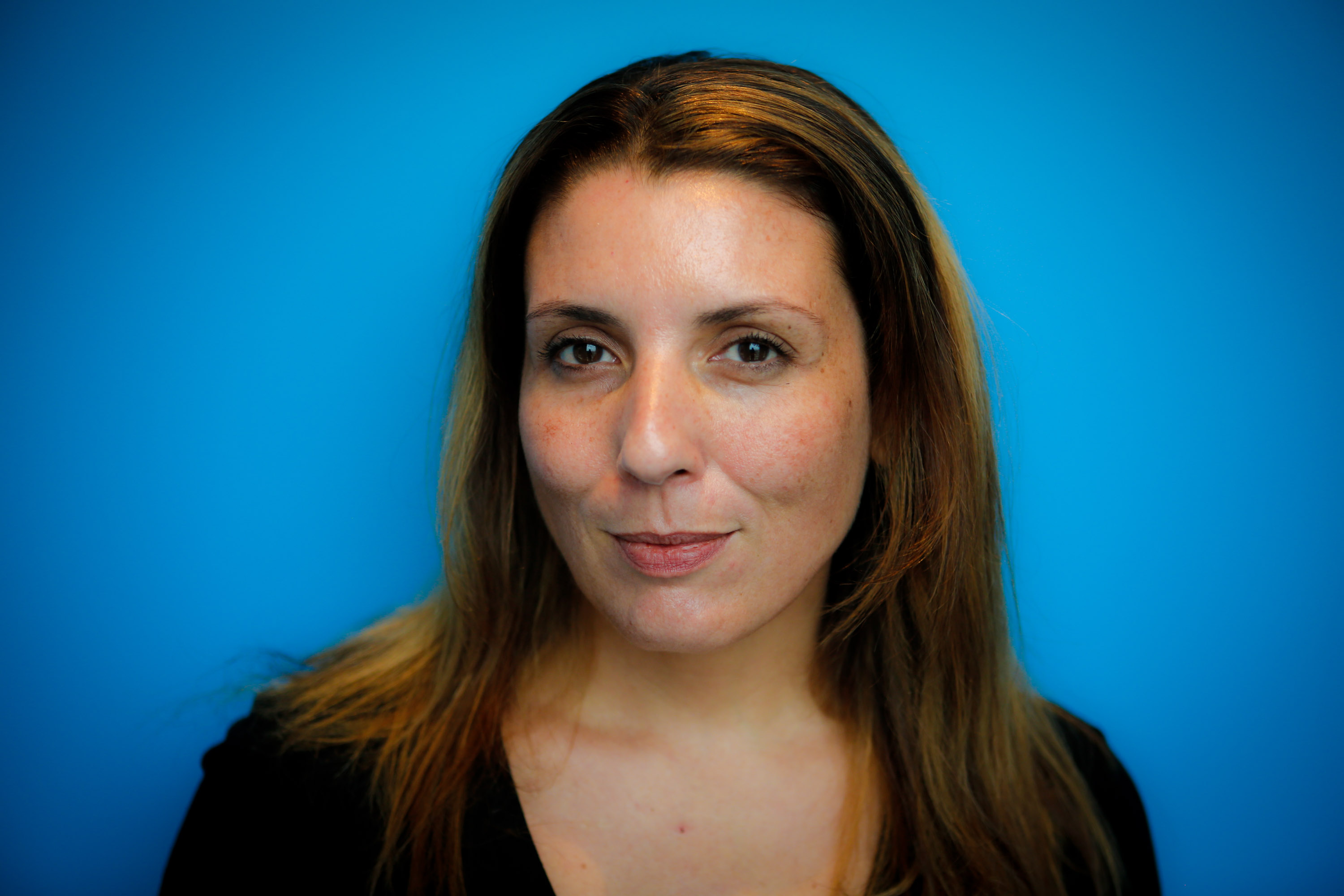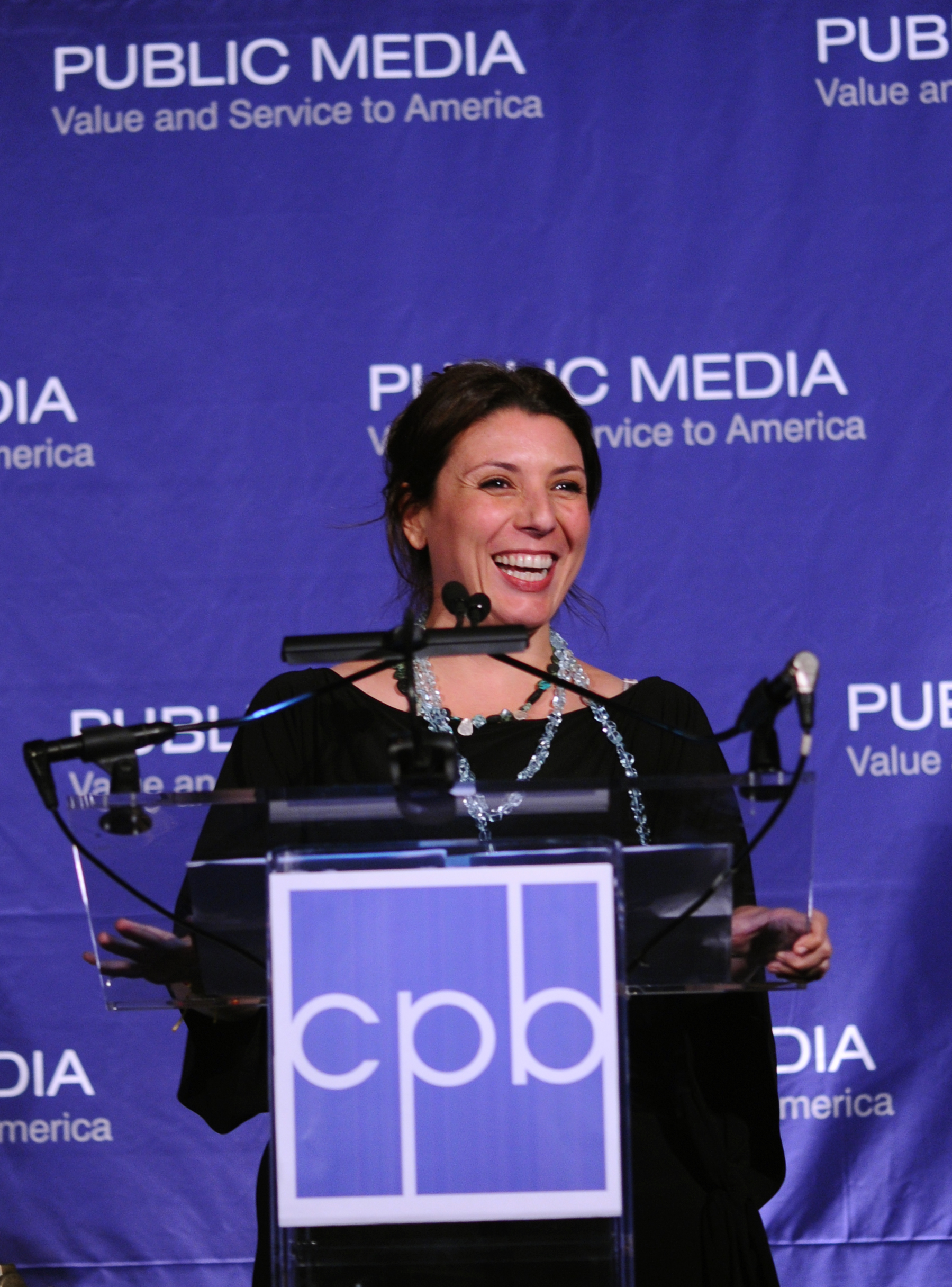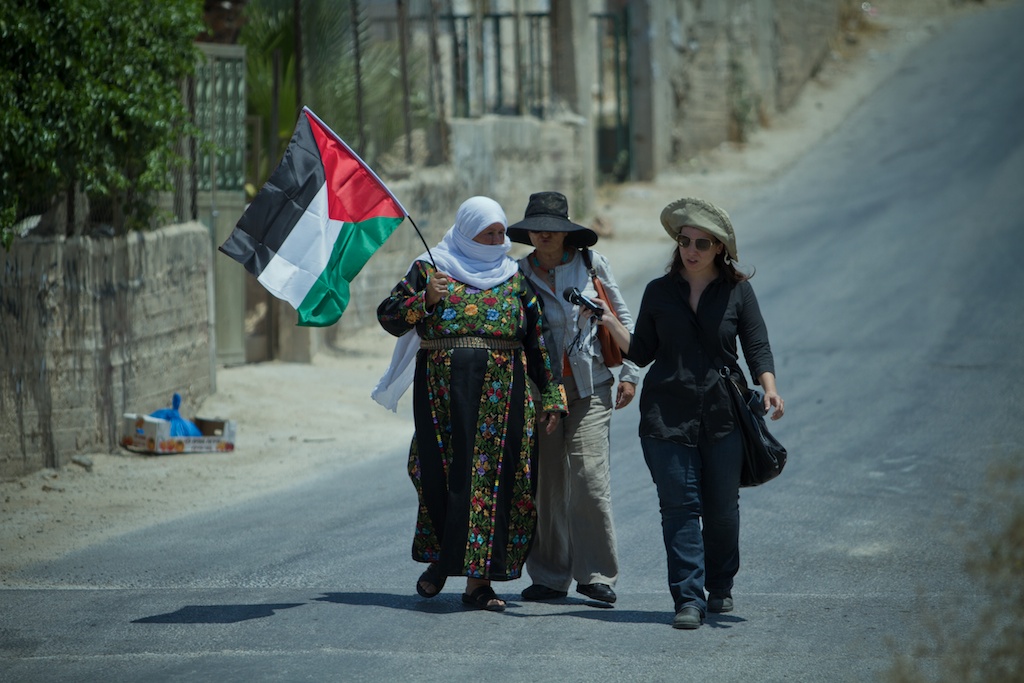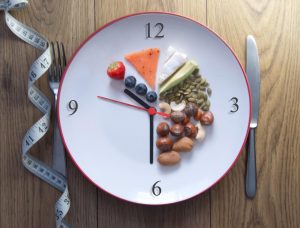
NPR international correspondent and new host of Sunday Weekend Edition, Lulu Garcia-Navarro (Image credit: John Poole/NPR)
YOUR SUNDAY MORNINGS ARE CHANGING — but for the better. No, brunching with your squad isn’t magically becoming free, but NPR listeners have something great to look forward to. NPR’s Weekend Edition is getting a new host for its Sunday slot: international correspondent, Lulu Garcia-Navarro. (Don’t worry; fan favorite Rachel Martin is taking over weekday hosting duties.) While most recently based in Brazil, Garcia-Navarro has covered news all over the world, and now the Gracie and Peabody Award winner is heading to the East Coast for her newest assignment. She spoke with Lady Clever about her new position at NPR, facing environmental and political danger on the job, and she even weighs in on the Kim K/Taylor Swift feud.
What are you most looking forward to in taking over the Sunday slot for Weekend Edition?
The Puzzle! Okay, that’s not entirely true. Weekend Edition is the kind of place where you see on someone’s desk a bodice-ripper romance sitting next to a brick of a book on Middle East politics. It has its own brand of eclecticism and curiosity that I can’t wait to be a part of full-time.
What — if anything — are you nervous about?
Cursing on an open microphone. I have that bad habit when I get excited. Instead of saying ‘No way”, I sometimes use less public radio friendly language! It’s a something I picked up spending time in too many war zones.
Has former host Rachel Martin given you any advice or words of wisdom?
The first time I ever sat in the host seat, I thought I was going to be the first broadcaster to die on air. I was that terrified. I have gotten lots great advice from all the hosts, but every single one of them has told me one thing: just have fun with it and the audience will come along for the ride. I have to say that advice can be applied to most things in life.
What can listeners expect from you as a host?
The Puzzle will always be there, folks! What I love is being able to give people a space to tell their stories. There is such a diversity of voices out there, and I can’t wait to bring them to the audience. I’ve worked in so many different places, and the stories I love are the ones that surprise me and make me see things a different way.

Receiving the 2011 Edward R. Murrow Award for outstanding contributions to public radio (Image credit: Joyce N. Boghosian/Corporation for Public Broadcasting)
What are you looking forward to about moving to DC from Rio de Janeiro?
Real Mexican food! Which may sounds strange because I live in Latin America right now, but Mexican food doesn’t make it down this far south.
Zika has been making headlines for several months now. How is Zika is affecting women in Brazil?
Right now, we are just moving into the high season for Zika transmission. There is still so much we don’t know about Zika Congenital Syndrome. I just read a heart-breaking report about the first generation of microcephalic babies turning 1. This is something that Brazil will be dealing with for a long time to come.
Aside from reporting in Brazil, you also spent time as a correspondent for NPR in the Middle East. Did you face any difficulties as a female correspondent that you noticed your male colleagues didn’t, either in terms of covering a story or in the way you were treated by local reporters?
Being a woman in any profession can be both a blessing and a curse. In the Middle East, where many places are gender-segregated, as a woman you get access to 50% of the population your male colleagues can’t. I remember in Libya, NPR’s current Cairo correspondent, Leila Fadel, and I went to interview the widow of a man who had died. We were able to speak to her and her daughter and get a much more complete story about what had happened. There is something magical about being allowed into women’s secret spaces. Of course, women everywhere still face harassment and discrimination. I’ve felt under threat in certain situations in Latin America where violence against women is so endemic. Ultimately, every part of the world has its challenges.
You’ve done both light-hearted cultural reporting and taken on intense news stories, like the Arab Spring uprising. Do you prefer one type of reporting over the other?
You have to do both in order to give a complete, nuanced picture of the region you are reporting on. One of the things that is so great about Weekend Edition — and NPR generally — is that part of the mission is to bring some joy! There are some serious, difficult and urgent problems in the world that we must report on. But I think it’s also vital to look around you with wonder. The world is a complicated place, and I laugh as much as I cry.
At times, you’ve put yourself at great personal risk in order to cover a story. What drives you to make the choice to possibly put yourself in harm’s way?
I don’t see it as deliberately going in harm’s way. Sometimes, that is where a story takes you, and you follow it. I’m always careful, but I also think that we have a duty to show the world what is happening. I’ve never been an armchair reporter. I think it’s really important to see things for yourself and come back with something authentic.

Interviewing a resident of the West Bank (Image courtesy Lourdes Garcia-Navarro)
What was your scariest moment on the job? Or the time you were in most danger while reporting?
I’ve been trapped in hurricanes where I had to swim to safety, I’ve been shot at while in a moving vehicle, threatened with mob violence, and I’ve been (several times) in hotels that have been attacked. Natural disasters like earthquakes are the worst, frankly. International reporters often get sent to the places no one else wants to go – the places other people are running away from. I’m always scared in these moments. It’s important to feel fear, not only because it keeps you alive, but it allows you to empathize with people who are dealing with possibly the worst moment of their lives. I’ve never cut out my emotional response to what I’m seeing. You can be fair without being disconnected.
If you had a chance to conduct your dream interview with any subject, dead or alive, who would you choose, and why?
My dad died when I was very young. I’d like to see him again and have a chat. And also, you know, Beyoncé and Anne-Marie Slaughter and Sandra Cisneros. Women who embrace their awesomeness are always amazing to talk to and learn from.
If you could do a story on any part of the culture in the US, what would it be? What fascinates you about that choice?
In many ways, I’m coming to the US with fresh eyes. This is an incredible time, and the country is in transition. Who are we? What are we? Where are we going? It’s playing out in every sphere, and I’m really interested in exploring the answers to those questions. Also, I hope the whole Kim Kardashian/Taylor Swift thing gets fully resolved before I move back.
We hope so too, Lulu… We hope so too.
♀
You can listen to Lulu on Sunday Weekend Edition, which airs Sunday mornings 8am-10pm EST on your local NPR station. To keep up with Lulu, follow her on Facebook and Twitter.
















